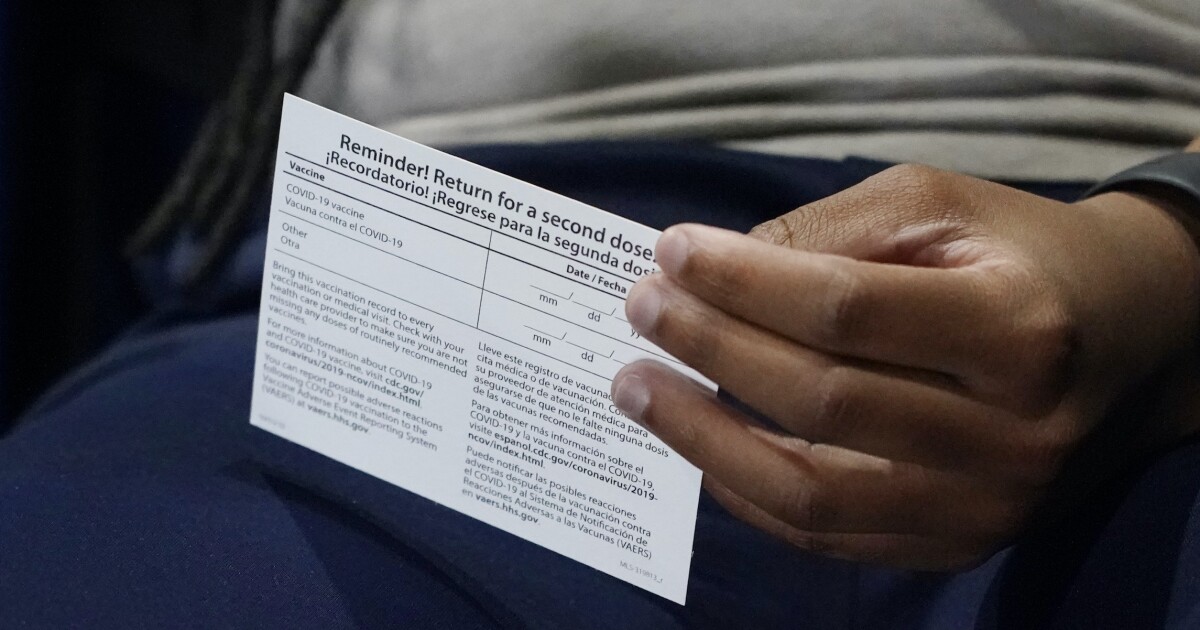

The Biden administration’s fall campaign to get people vaccinated with the omicron booster has been off to a slow start, with only 14.8 million people opting to get the new shot since it was first made available in late August to those 12 and older and earlier this week to those 5-11 years old.
The government hoped to have more people boosted in anticipation of a rise of COVID-19 cases going into the holiday season, purchasing over 170 million doses of Moderna’s and Pfizer-BioNTech’s updated boosters in advance, but public interest has appeared to wane as only a small percentage of the roughly 226 million people who have completed their primary vaccination series have received the new booster, according to Centers for Disease Control and Prevention data released Thursday.
MASSACHUSETTS VOTERS TO DECIDE ON OBAMACARE-STYLE REGULATION OF DENTAL INSURANCE
“We’re doing everything we can as an administration to stay ahead of this virus,” said White House COVID-19 Response Coordinator Dr. Ashish Jha earlier this week. “If we all do our part — not just us in the administration, but Congress and the American people — I remain incredibly confident we can manage this virus for this fall and winter with less suffering, and we can have a safe and healthy holiday season ahead.”
A recent Kaiser Family Foundation COVID-19 Vaccine Monitor found that only 5% of adults say that they have received the updated booster, which has been authorized for people 5 and older following the completion of their primary 2-dose vaccination series or last booster, and less than a third of adults expressed interest in getting one as “soon as possible.” Older adults showed more interest, with 45% of those 65 and older saying they had gotten the shot or planned to “as soon as possible.”
Awareness of the updated booster was moderate overall, with a third of all adults saying they had heard “some” about the new shot.
Dr. John Vanchiere, chief of LSU Health Shreveport Department of Pediatrics Infectious Diseases Section and associate director for community outreach for the Center of Emerging Viral Threats, said that at a local vaccination clinic in Louisiana, they have seen “a slow, steady response” to the updated booster, with older residents having more interest in getting one.
“We’re aware that community knowledge about the bivalent booster is still fairly low. That is, people don’t know it is available and also don’t know why they need it,” said Vanchiere. “We’re working on the PR side of things to get that message out to help people to understand there’s two components to it. One is the original virus plus the virus that is circulating now and how that is very similar to what we do with the flu vaccine that has four different strains in it to really help people understand that this is about risk mitigation, and these are some of the best ways to reduce risk during the winter.”
Vanchiere anticipates that more people will get the updated booster as it gets closer to Thanksgiving in preparation for traveling and visiting family.
“Overall, the vaccination push will continue to be a long slog, perhaps only receiving a jolt if cases start to rise significantly and/or a new variant emerges that is more harmful,” tweeted Jen Kates, Kaiser Family Foundation’s director of global health and HIV policy.
Some of the slow uptick could be attributed to the discussion over how much additional protection the booster adds against infection and severe disease. Dr. Paul Offit, a member of the FDA’s Vaccines and Related Biological Products Advisory Committee who voted against approving the updated booster, told CNN that a healthy, young person was “unlikely to benefit from a booster dose” and said that it should be targeted to older people.
Pfizer-BioNTech released the first results from its study in humans with the updated booster on Thursday, saying that it provided a strong immune response against COVID-19 subvariants B.A. 4 and 5 and was as safe as previous vaccines.
CLICK HERE TO READ MORE FROM THE WASHINGTON EXAMINER
Less than a third of children ages 5-11 are eligible for the updated shot, as only 31% of children in that age range have received their primary vaccination series, according to the American Academy of Pediatrics.







